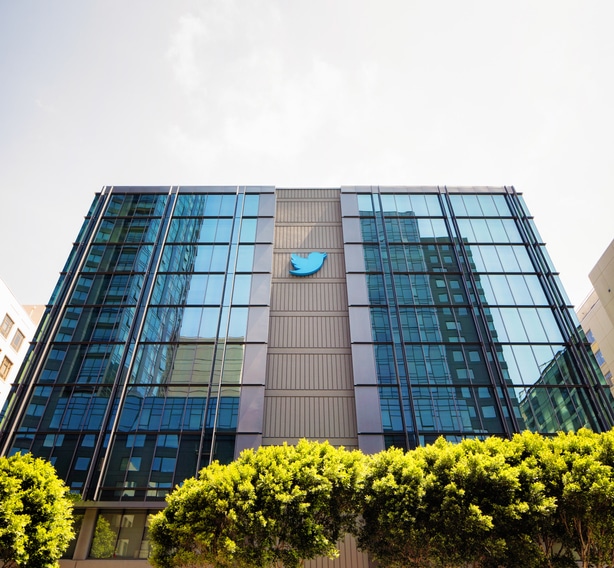In July of 2022, WNN reported on an anonymous whistleblower who testified at the seventh hearing hosted by the Select Committee to Investigate the January 6th Attack on the United States Capitol. During the hearing, the whistleblower talked “about former President Donald Trump’s behavior on the platform, especially with regards to a tweet Trump made on December 19 denouncing the results of the 2020 presidential election and advertising a ‘big protest’ on January 6,” the WNN article states.
Former Twitter employee Anika Collier Navaroli revealed her identity as the whistleblower in a Washington Post article published in September of 2022. Representative Jamie Raskin (D-MD) also announced Navaroli as the whistleblower on Twitter.
Now, Navaroli is speaking out in her first television interview with CNN. She expresses disappointment in the Committee’s final report and wishes the document included more about the responsibility of social media companies within the events of the January 6th insurrection
Trying to Sound Alarms at Twitter and the Committee’s Final Report vs. an Unpublished Draft Report
Navaroli talked to CNN reporter Donie O’Sullivan about her concerns that another January 6th-type event could be possible, stating: “I do fear for the future and what it may hold.” She is limited on what she can talk about regarding her time working for the tech giant, but the CNN segment discussed details that Navaroli shared in her deposition. One example of such a detail is that the night before the insurrection, “Navaroli and her colleagues wanted management at Twitter, ‘There might be someone getting shot tomorrow.’”
Navaroli describes feeling “terrified” watching the events on January 6th unfold and expressed her thoughts on the final report the January 6th Committee produced. “Social media companies are mentioned hundreds of times within the final report. However, their role or their responsibility within that day and the events of that day and the violence that occurred has not been fully laid out,” she tells O’Sullivan.
According to the video, the Committee had a dedicated group called the “purple team” that investigated social media and extremism. The team prepared a draft document that remained unpublished and was not incorporated into the Committee’s final report, but CNN got access to it. The draft report included a “far more blistering assessment” of social media platforms’ role in the insurrection.
While the final report stated that “Social played a prominent role in amplifying erroneous claims of election fraud,” the unpublished draft report goes into more detail and comes to more serious conclusions. According to CNN, key findings in the unpublished draft report state:
- “Social media platforms delayed response to the rise of far-right extremism—and President Trump’s incitement of his supporters—helped to facilitate the attack on January 6th.
- “Fear of reprisal and accusations of censorship from the political right compromised policy, process, and decision-making.”
- “Twitter failed to take actions that could have prevented the spread of incitement to violence after the election.”
- “Facebook did not fail to grapple with election delegitimization after the election so much as it did not even try.”
“I risked a lot to come forward, and to speak to the Committee, and to share the truth about these momentous occasions in history,” Navaroli says to O’Sullivan. “And I think it is really a missed opportunity that the Committee did not include that information forefront and center within their report.”
CNN reports that “Twitter’s previous management repeatedly outlined steps it said it was taking to crack down on hateful and violent rhetoric on its platform prior to Jan. 6, 2021, but stressed it didn’t want to unnecessarily limit free expression.” Interestingly, “Under Musk’s leadership, Twitter no longer has a responsive communications team, and the company did not respond to CNN’s request for comment.”
Others Agree: Twitter Should Have Heeded Employees’ Warnings
O’Sullivan interviews Alexis Ronickher, an attorney who is representing another anonymous Twitter whistleblower, and Jacob Glick, a lawyer who worked for the Committee “who conducted multiple depositions” and deposed Navaroli. In the interview, both Ronickher and Glick express concerns regarding Twitter’s behavior in the leadup to January 6th.
“It wasn’t actually until the doors of the Capitol were being breached that Twitter leadership started taking action,” Ronickher remarks. “At that point, it was too little, too late – the real-world harm and violence had happened.” Glick reflects on Navaroli’s deposition, stating that the whistleblower described employees voicing concerns to their supervisors but being repeatedly denied. “Who knows what could have been avoided if they had listened to her and her colleagues sooner,” Glick says. However, he also says that the draft document contained errors and should not have been released.
Twitter: No Stranger to Whistleblowers
Navaroli is not alone as a Twitter whistleblower. Peiter Zatko, Twitter’s former head of security, filed whistleblower complaints in August 2022 alleging “that the company deceived regulators, investors, and its own board of directors about ‘extreme, egregious deficiencies’ in its cybersecurity defenses,” prior WNN reporting states. He submitted his complaints with the U.S. Securities and Exchange Commission as well at the FTC and DOJ. In September 2022, Zatko, or “Mudge,” testified before the Senate Judiciary Committee about his allegations that the social media platform has “egregious deficiencies” in its cybersecurity defenses.
Additionally, another whistleblower complaint has come to light regarding alleged data and privacy concerns at the company. An anonymous whistleblower alleges in a complaint filed in October that there are still serious privacy and data security concerns at Twitter. This complaint alleges that “[a]s many as 4,000 company employees could access an internal function nicknamed ‘GodMode’ that allows them to take over private accounts and tweet – or delete tweets from them,” Bloomberg reported.
